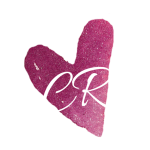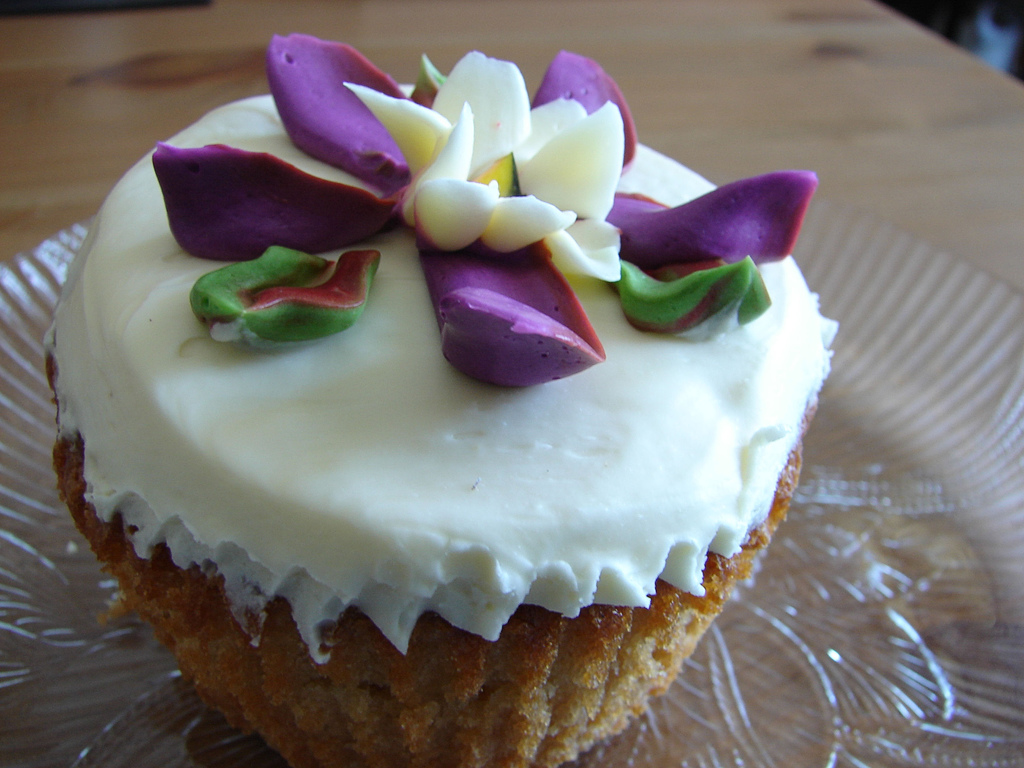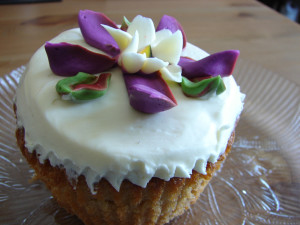I’m pretty lucky that the organization I work for really supports and provides for our ongoing professional development and continuing education. Both of these are protective factors for compassion fatigue management.
Yesterday we had a psychiatrist come in and present on some of the latest research around food addictions. I was quite happy. My background is in co-occuring disorders (addictions and mental health) and I’ve been following the slow to emerge research on food addictions.
It’s so cool that we now have scientific proof that some people’s brains react to certain food the same way the brains of people who are addicted to alcohol or cocaine do, when around their substance of choice.
Basically, if someone has an addiction to sugar, when they saw the picture of the cupcake at the beginning of this post, their brains would react differently than those without an addiction.
I think what is important to note is that there is a difference between people who eat a lot of food, people who have eating disorders and people who have a food addiction.
Just like most of the population can drink alcohol without becoming addicted, most of the population can eat foods without having an addiction.
Over the holidays I read a new book written by a doctor in Toronto, Canada called Food Junkies.
This book is a great resource for people who want to learn more about the process of food addiction, the research that supports it, the types of foods that are most addictive and the types of treatments available.
I will definitely be referring patients to this book.
I truly feel that the more education, training and resources in my toolbox, the better able I am to manage my own Compassion Fatigue… I’m still in the Zealous Phase and I couldn’t be happier!
Want to learn more about the Compassion Fatigue trajectory and how to manage your own compassion fatigue. Check out the online Compassion Fatigue Recover course here.
Peace, love & joy
Char


